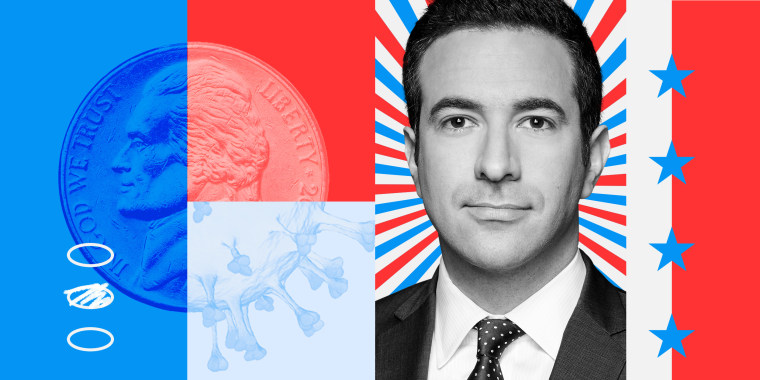Some of America’s most significant challenges are the least likely to register in the upcoming midterm elections. Amid historic clashes over the Jan. 6 insurrection, democracy and women’s rights, there are signs the midterms will still ultimately turn most on the economy.
Specifically, on inflation and the pandemic’s aftermath.
While the very rich don’t “feel” inflation — and elites may talk about it less in the Beltway — most people do.
Inflation now tops 9%, the highest annual rate in four decades. Savings are declining in real value, and people on fixed budgets can’t keep up. While the very rich don’t “feel” inflation — and elites may talk about it less in the Beltway — most people do.
The median income in America is around $1,100 a week right now, which does not leave much room for hundreds of dollars to just evaporate. While politicos scour election polls, asking people about their spending may be more relevant to this particular election.
NBC News did just that in May and found a whopping 65% of respondents said their family’s income is now “falling behind the cost of living.”
More broadly, about 40% of voters said the economy is now the most important issue, and 75% said the U.S. is going in the wrong direction. That may reflect many ills, from the pandemic’s disruptions to the fierce rancor in politics, but President Joe Biden has yet to change the mood. While he won more votes than Donald Trump did in either 2016 or 2020, Biden is now as unpopular as Trump was at this point in his term — around 40%.
The pandemic hangs over all of this.
Biden ran more against Trump — and for a “return to normalcy” — than any particular sweeping agenda. The recent poll numbers, however, suggest most people feel things are far from normal — or “good normal,” anyway.
The economy and pandemic are closely intertwined — and neither is helping Biden. Economists say pandemic fallout is partly driving inflation, market jitters, supply chain problems and signs of a possible recession — as the initial post-lockdown boom gives way to other adjustments. People are back outside, but not exactly returning to life or work as it was (often by choice). That may suit them, but things don’t feel that normal.
Biden benefited from Trump’s clumsy failures handling the pandemic's onset in 2020, but that feels like a lifetime away from 2022. Binary debates about “science,” or whether vaccines work (they do), have given way to more fluid policy trade-offs about schools, work, safety measures and mandates. Sometimes, the Biden administration looks more like it’s in quiet retreat, rather than leading a policy evolution from prevention to mitigation.
On top of all those “macro” factors is the history: Incumbent parties lose seats in the midterms. They just do. The exceptions are quite rare (like the midterms after the Sept. 11 attacks).
Anything can happen. But right now, it looks like we are headed toward another pandemic election, with a voter backlash against incumbents for all the things that aren’t working.

